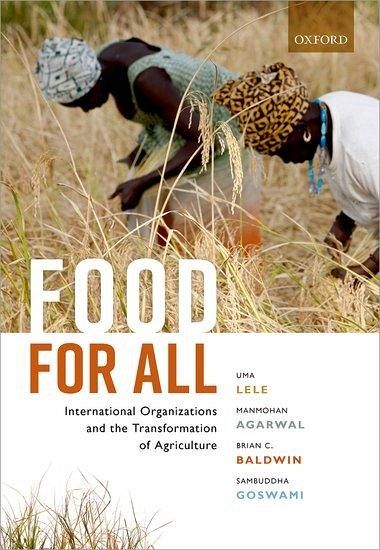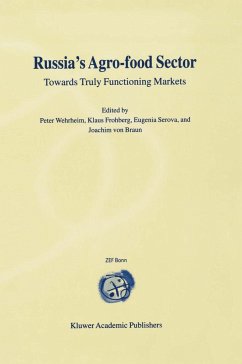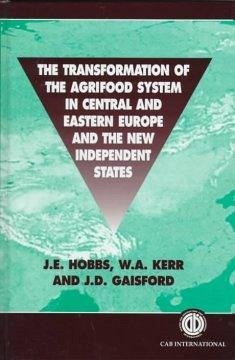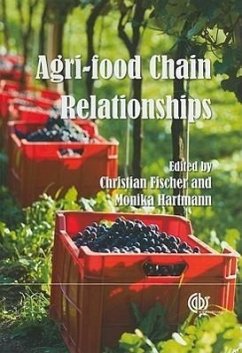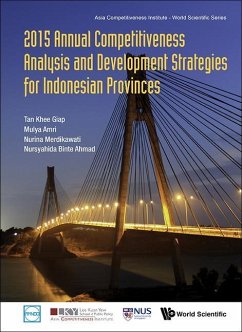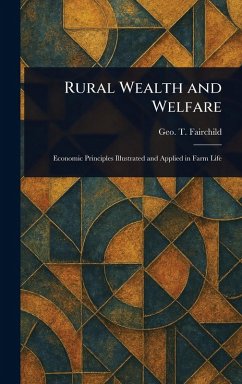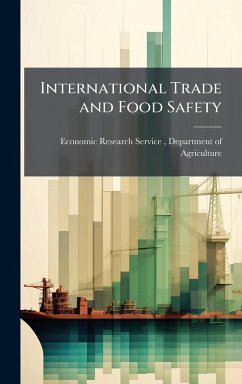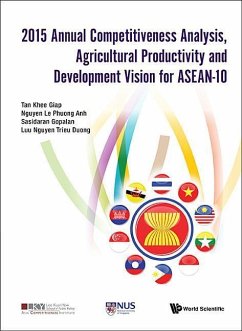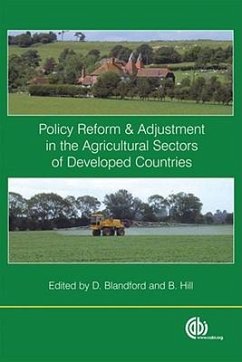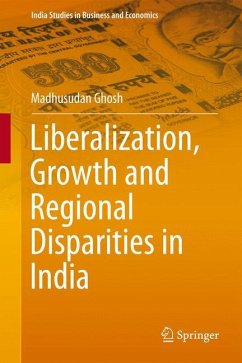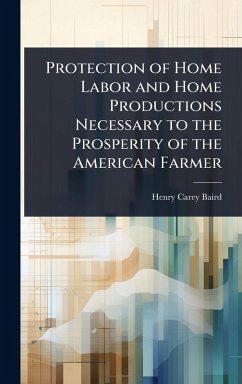Food for All
International Organizations and the Transformation of Agriculture
Versandkostenfrei!
Versandfertig in über 4 Wochen
Weitere Ausgaben:

PAYBACK Punkte
83 °P sammeln!




This book assesses the prospects for achieving the sustainable development goals, and the role of international organizations in achieving them, in light of recent economic, medical, and environmental developments.
Uma Lele (PhD, Cornell University) is a development economist with decades of experience in research, operations, policy analysis, and evaluation in the World Bank, universities, and international organizations. At the World Bank's Independent Evaluation Group, she led complex evaluations of the Bank's Forest Strategy (2002), meta-evaluation of the CGIAR (2003), and the World Bank's global programs (2005). She has served on numerous advisory, expert, and award panels in international organizations, including the World Food Prize (1987-1994) and the MacArthur Foundation (1991-1995). She has been recognized with numerous awards and is a President elect of the International Association of Agricultural Economists. Manmohan Agarwal is Adjunct Senior Fellow at Research and Information Systems for Developing Countries, New Delhi, and Adjunct Senior Fellow at the Institute of Chinese Studies, India. He was formerly the Reserve Bank of India Chair Professor at the Centre for Development Studies at Thiruvananthapuram, Kerala, India, and Professor at Jawaharlal Nehru University, New Delhi. He was a senior fellow at the Centre for International Governance Innovation (CIGI) at Waterloo, Ontario, Canada, and previously worked at the World Bank and at the International Monetary Fund. His research has focused on international economics and development economics, the role of the G20, South-South cooperation, and the international monetary system. Brian C. Baldwin is a geographer and agricultural economist. He has worked with the UK's DFID in Sri Lanka and Zambia, USAID, UNIDO, FAO, IFAD, the EU, and the private sector in South East Asia and Southern Africa. He led IFAD's involvement in the Heavily Indebted Poor Countries Debt Initiative (HIPC DI) and IFAD's harmonization and alignment initiatives under the Paris Declaration and Accra accords. He co-chaired the Global Donor Platform for Rural Development, chaired the Multilateral Development Bank working group on Management for Development Results, and was the IFAD representative at the Organisation for Economic Co-operation and Development (OECD) Development Assistance Committee (DAC). He continues to work as an evaluation and policy adviser with both the public and private sector. Sambuddha Goswami is a researcher whose areas of study include data assembly and the analysis of metadata sets concerning structural transformation, productivity growth, food, agriculture, nutrition, water and forest management, poverty, health, gender, energy and the environment, global public goods, external assistance, and partnerships. He has worked with the Agricultural Development Economics Division, as part of the FAO Statistics Division, to support the Technical Working Group on Measuring Food and Nutrition Security of the Food Security Information Network (FSIN) of FAO, WFP, and the International Food Policy Research Institute (IFPRI); and at the World Bank (December 2015-June 2016) on the National Agricultural Higher Education Project (NAHEP) in India.
Produktdetails
- Verlag: Oxford University Press
- Seitenzahl: 1064
- Erscheinungstermin: 19. Januar 2022
- Englisch
- Abmessung: 255mm x 180mm x 62mm
- Gewicht: 2046g
- ISBN-13: 9780198755173
- ISBN-10: 0198755171
- Artikelnr.: 61991068
Herstellerkennzeichnung
Libri GmbH
Europaallee 1
36244 Bad Hersfeld
gpsr@libri.de
Für dieses Produkt wurde noch keine Bewertung abgegeben. Wir würden uns sehr freuen, wenn du die erste Bewertung schreibst!
Eine Bewertung schreiben
Eine Bewertung schreiben
Andere Kunden interessierten sich für



